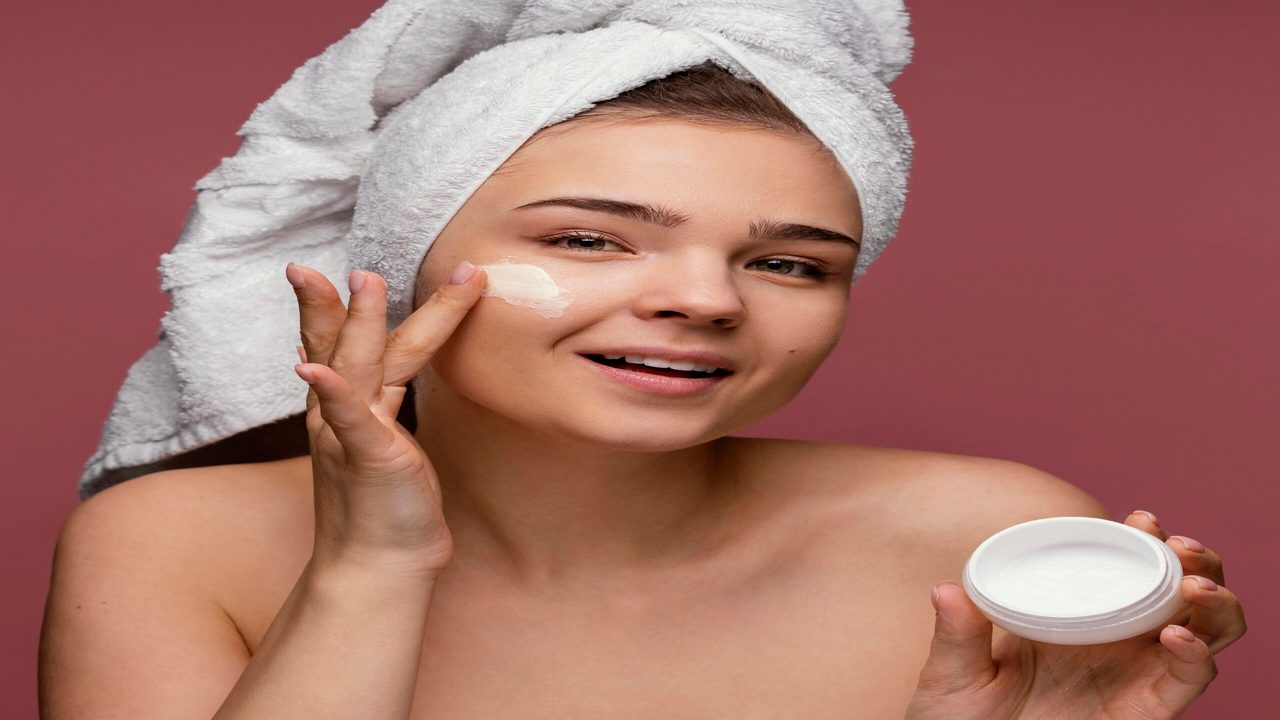What is a Skin Barrier?
Your skin is a bodyguard and guards your body against external attacks. It is the topmost layer of your skin- also referred to as stratum corneum- and it serves to shield your body against pollutants, bacteria, allergens, and moisture loss.

Why It Matters for Healthy Skin
Healthy skin barrier maintains your skin well hydrated, smooth and hard. When it is working properly you hardly notice it. When it is damaged, though? It is then that issues of dryness, redness, flaking and acne flare-ups appear.
Signs of a Damaged Barrier
- You might get dry, tight skin
- red, irritated patches
- feel burning, stinging
- Out of nowhere breakouts or sensitivity
In case anything here sounds familiar, a skin barrier cream may be just what you are looking for.
What is a Skin Barrier Cream?
A repair and protective moisturizer, skin barrier cream assists in rebuilding and repairing the natural barrier of your skin. Unlike typical moisturizers, that really just hydrate the surface, these creams usually have ingredients that repair the skin’s lipid matrix and rebalance it.
Key Ingredients to Look For
- Ceramides – Replenish Moisturizing lipids-deficient
- Fatty acids – Stiffen cell wall
- Cholesterol – Help to heal the skin
- Panthenol & Niacinamide – Anti Inflam & Anti Redness.
- Deep hydration that is not heavy Hyaluronic Acid
How It Works
A skin barrier cream creates a protective layer when used on the skin, and it seals moisture and protects the skin against environmental stress factors. It aids over time in helping your skin to heal and repair itself to optimal functionality.
Why Skin Barrier Cream is Hyped Right Now
Social Media Trends
TikTok and Instagram skincare have had an obsession with barrier repair routines especially following overuse of active ingredients like retinol or acids. Glow-from-within has taken the place of the matte over-exfoliated trend.
Dermatologist Recommendations
Skin practitioners are prescribing a more skin-minimalist strategy: less is more. It is a stripped down version of the 10-step method and goes back to the basics, which is a gentle cleanser, sunscreen, and a good skin barrier cream.
Benefits of Using a Skin Barrier Cream
Hydration Boost
These creams are highly moisturizing and restore your natural oils and increase the ability to hold water in the skin.
Soothing Inflammation
Barrier creams may include calming ingredients such as aloe, oat extract and niacinamide to minimize redness, itchiness and irritation.
Repairing Dry or Compromised Skin
You overdid it with the exfoliation, or you have eczema, or your skin is simply stressed out–a skin barrier cream can get it back on track sooner.
Protection from External Irritants
Good skin barrier is armor. These creams strengthen that protective shield, so you are not so sensitive to pollution, allergens, or even harsh skincare products.
How to Use Skin Barrier Cream in Your Routine
Step-by-Step Application
- Cleanse: not stripping hydrating gentle cleanser.
- Tone (in case there is) – in case it is not alcoholic and relaxing
- Serums – niacinamide or hyaluronic acid for example
- Apply Skin Barrier Cream – at the end of the night; or prior to SPF in the morning
- Seal (optional) – Should be very dry then you can seal it with an occlusive balm
Morning vs. Night Use
Barrier creams work at night time. During the day, they provide shelter- particularly in extreme weather conditions or during winter.
Who Should Use Skin Barrier Cream?
Best for Dry, Sensitive, and Acne-Prone Skin
This is your holy grail, especially, should you have tight, flakey, or easily-irritated skin. It is non-clogging and soothes and eliminates flare-ups with prolonged use.
Post-Treatment or Damaged Skin
Following chemical peels, retinol burns, or microneedling, a skin barrier cream would be a lifesaver as it would increase healing time.
What to Avoid While Using a Skin Barrier Cream
Harsh Actives That Can Worsen Irritation
Don’t overdo on the barrier cream.:
- Strong retinoids
- AHAs/BHAs of high concentration
- Alcohol-heavy toners
- Physical exfoliants
They are able to turn the healing process back.
Ingredients That Don’t Mix Well
Coconut oil, the heavy oils, can trap bacteria underneath the cream. Also, applying too many occlusives can be clogging to pores.
Simplisite: cleanser + serum + skin barrier cream.
Choosing the Right Skin Barrier Cream
Ingredients Checklist
Make sure the label includes:
- Ceramides (at least 3 types)
- Fatty acids (linoleic, stearic etc).
- Soothers (panthenol, oat ,cetella )
Skip fragrances and alcohols if you are sensitive.
Texture Preferences
- Gel creams – These suit better to oily skin or acne prone skin
- Lotions -combo or normal skin
- Balms-Very dry skin type or at nighttime
Common Myths and Misconceptions
- “Barrier cream is only required in dry skin.” False. A damaged barrier could also exist in oily skin.
- “When you apply skin barrier cream, you do not require moisturizer”. This does not always need to be. Barrier creams are mostly moisturizers, but layering may be helpful in extreme cases.
- “It will snap me out.” The non-comedogenic formulas are so made that they do not clog. Choose wisely.
Final Thoughts
Skin barrier cream is not a trend, it is a skincare essential, which has real, scientifically proven effects. Either your barrier is compromised or you simply want to future-proof your skin against external stresses, incorporating this cream into your routine is a smart (and skin-friendly) decision.
It is easy, efficient, and works well in line with a no-fuss skincare regimen. All you need to keep in mind is that there should be no harsh actives, your routine should be simple, and never skip.
FAQs
Mayank Rawat
Certified Skincare Consultant and passionate researcher, I specialize in exploring skincare ingredients and haircare actives. Always eager to stay ahead of trends, I continuously update my knowledge to bring science-backed solutions. Dedicated to helping others achieve healthy skin and hair through expertise and innovation.